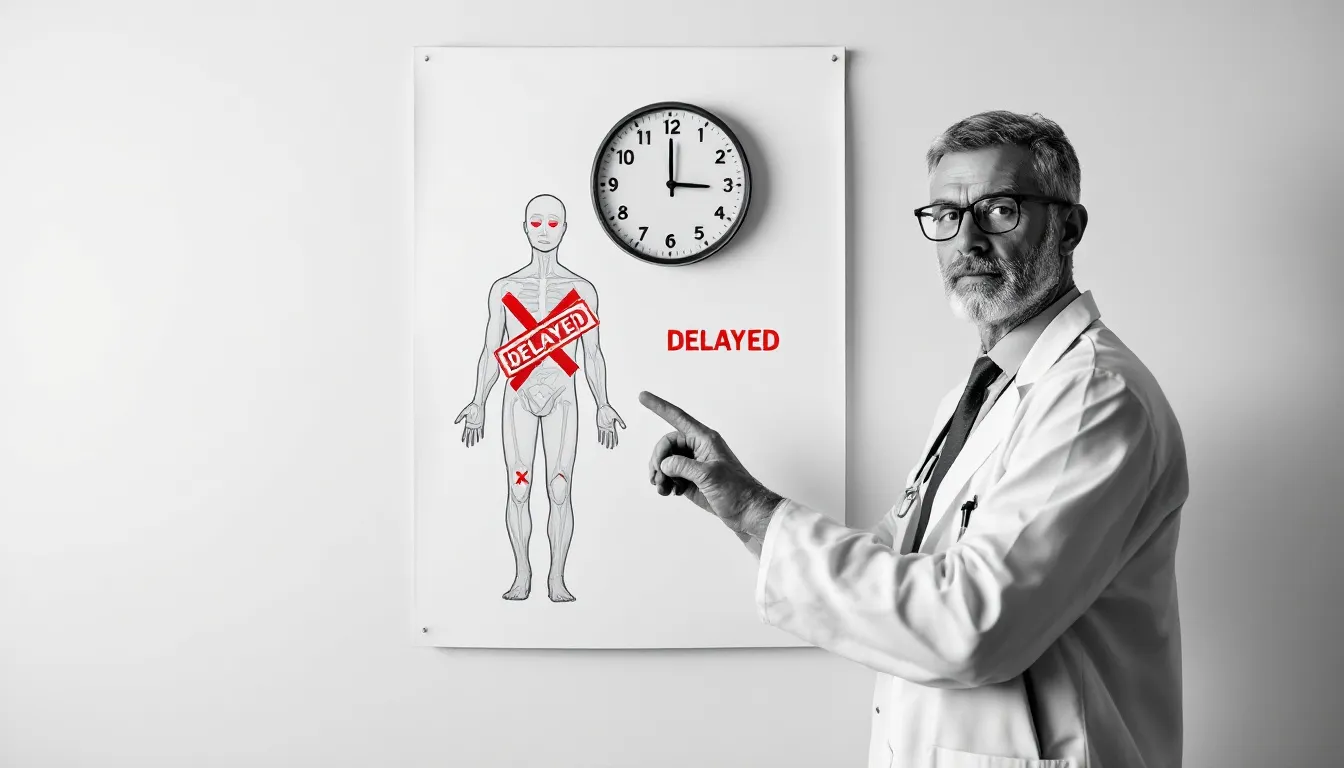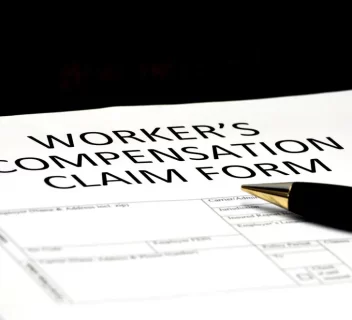How Long Does an Employee Have to Report an Injury? Essential Guidelines for Workers
How long does an employee have to report an injury? Employees need to act quickly because timelines for reporting workplace injuries vary by state – from immediate notification to several days or even months. Employees injured on the job must understand the importance of timely reporting to ensure they receive the necessary medical and wage compensation. This article will explain these deadlines, highlight the importance of timely reporting, and outline what steps you should take after an injury.
Key Takeaways
- Timely reporting of workplace injuries is essential for securing workers’ compensation and ensuring proper medical treatment.
- Each state has specific reporting deadlines for workplace injuries, highlighting the importance of understanding local laws to protect employee rights.
- Employers have critical responsibilities following an injury, including providing immediate medical treatment, maintaining accurate records, and assisting with claims submission. Understanding the details of a workplace accident is crucial for properly pursuing a workers’ compensation claim and navigating the complexities that arise.
Understanding Workplace Injuries
Workplace injuries can have a significant impact on an individual’s life, affecting their physical and emotional well-being, as well as their financial stability. It is essential to understand what constitutes a workplace injury and who is eligible to report one.
What is a Workplace Injury?
A workplace injury is any physical or mental harm that occurs while an employee is performing their job duties or as a result of their work environment. This can include injuries caused by accidents, illnesses, or repetitive strain. Workplace injuries can range from minor cuts and bruises to severe conditions such as traumatic brain injuries or occupational diseases. Recognizing the wide spectrum of potential injuries is crucial for ensuring that all incidents are reported and addressed appropriately.
Who is Eligible to Report a Workplace Injury?
Any employee who suffers a workplace injury is eligible to report it to their employer. This includes full-time, part-time, and temporary workers, as well as those who work for companies with three or more employees. In some states, even employers with fewer than three employees may be required to provide workers’ compensation coverage. Understanding eligibility is vital for ensuring that all injured workers receive the support and benefits they are entitled to under the law.
Reporting Workplace Injuries: The Basics

It is essential to report a work-related injury as soon as it happens. Quick reporting sets the stage for initiating a workers’ compensation claim and guarantees that injured workers get swift access to necessary medical treatment, which aids in averting additional health issues and expedites their recovery process. Imagine enduring an injury from using heavy equipment or experiencing a slip and fall incident, only to discover that not reporting it on time has put your eligibility for workers’ compensation benefits at risk.
Neglecting the prompt disclosure of workplace injuries can result in serious legal ramifications and health setbacks for the affected employee. This negligence can compromise occupational safety standards within the work environment. When employers receive precise reports without delay, they are able to pinpoint dangerous conditions swiftly and implement measures to rectify them—thereby fostering a more secure environment for all employees.
Workplace accidents may lead to various types of harm ranging from simple abrasions to severe traumas like head injuries or traumatic brain injuries. Documenting these incidents when an injury occurs through proper reporting procedures ensures that each case is managed adequately while also safeguarding the welfare of those hurt—and helps in preventing similar future occurrences where another worker might sustain an injury under comparable circumstances.
State-Specific Deadlines for Reporting Work-Related Injuries
In the United States, every state has distinct deadlines that must be adhered to when reporting injuries sustained in the workplace. Timely reporting is crucial because it helps verify that the injury occurred during work, which is essential for securing workers’ compensation benefits. While some states necessitate immediate notification of such incidents, others may provide a grace period extending up to several months. As these time limits are not uniform across states, it is imperative for workers to acquaint themselves with their own state’s regulations so as not to jeopardize their eligibility for workers’ compensation benefits.
This understanding transcends mere adherence to rules. It’s about safeguarding one’s entitlements following an injury on the job. Being aware of the specific window allowed for reporting can determine whether an employee secures the deserved compensation or encounters obstacles due to a rejected claim. It should also be noted that employers might have internal policies impacting this timeframe, which underscores why it is crucial for employees and injured workers alike to stay informed.
General Reporting Timelines by State
Different states mandate various deadlines for reporting workplace injuries, with some requiring reports within as short as 24 hours and others granting up to 30 days. In places with the most immediate demands, employees might have only one day or a week to submit their report. Understanding how long does an employee have to report an injury in your state is vital to ensure compliance and avoid any potential issues with your claim.
Conversely, several states offer an extended timeframe in which employees can file for workers’ compensation claims—sometimes allowing up to two years after initially reporting the injury. The significant variation across state lines underscores the necessity of understanding your own state’s regulations to secure timely filing and preserve eligibility for any due workers’ compensation benefits.
Occupational Illness Reporting Timelines
The process of reporting timelines for occupational diseases is usually distinct from that of immediate injuries, owing to the fact that symptoms may not emerge immediately. To accommodate this, some states have extended deadlines for reporting such illnesses, recognizing the time it might take for these ailments to present themselves. Claims can often be initiated once there’s a recognition of symptoms, even if years have passed since the first encounter with hazardous elements.
Acknowledging that occupational diseases are different in character from sudden injuries sustained by workers, several states provide up to a two-year period following an illness report within which employees can file a claim. This consideration allows those who suffer from conditions caused by prolonged exposure to harmful substances or environments the opportunity to pursue rightful compensation.
Employer Responsibilities After a Workplace Injury

When an injury occurs in the workplace, it’s imperative for employers to take immediate action. Their primary duty is to secure prompt medical care for the employee who has sustained the injury, making sure that their well-being is given top priority. This could require arranging transport to a hospital or summoning emergency services when necessary.
It’s also mandatory for employers to meticulously document every incident of workplace injuries. They must inform their workers’ compensation insurer and complete all related documentation within established timeframes. Keeping precise records is essential not only for adhering to state regulations but also for streamlining the process by which injured employees file claims.
Employers play a crucial role in ensuring that employees receive their workers comp benefits. They must provide guidance and support through the workers’ compensation claim filing process, assisting in filling out and submitting any required forms and accompanying medical documentation either directly with their insurance provider or appropriate state agency. By upholding these duties, employers contribute significantly toward fostering improved recovery prospects for those injured on the job while simultaneously cultivating a safer work environment overall.
Employees’ Steps to Report a Workplace Injury

Employees who have experienced an injury at work must adhere to certain steps if they wish to qualify for workers’ compensation benefits. It is imperative that they seek medical attention immediately, even for seemingly minor injuries, as this aids in preventing health issues and serves as a vital record for the worker’s compensation claim.
Subsequently, it is essential for employees to inform their employers about the workplace injury without delay. The report should encompass all pertinent details of the incident including any witnesses present, where it occurred, what caused it, along with its date and time. Taking these actions promptly after an injury occurs on the job not only aligns with regulations pertaining to workers’ compensation but also safeguards the legal rights of those injured. Knowing how long does an employee have to report an injury is crucial for ensuring compliance with legal requirements.
To officially initiate a workers’ compensation claim process following an injury at work requires that affected employees fill out and submit specific documentation accurately. An employee must complete an incident report alongside a worker’s comp claim form, which then needs submission according to stipulated protocols or authorities. Obtaining advice from an attorney specializing in worker’s compensation can offer substantial assistance in ensuring the accurate completion of necessary paperwork while adhering strictly to prescribed deadlines.
Seek Medical Attention Immediately
It is imperative to obtain medical attention without delay following an injury at work. This action not only aids in averting additional health issues but also generates vital records required for filing a workers’ compensation claim. These medical documents are key as they substantiate the occurrence and extent of the injury, which are essential elements during the claims procedure.
Securing swift medical treatment is particularly critical for injuries that might initially appear negligible yet have the potential to escalate if left unaddressed. Consulting with a healthcare provider guarantees that any and all injuries receive accurate diagnosis and appropriate care, establishing a solid base on which to build a successful claim for workers’ compensation.
Notify Your Employer as Soon as Possible
It’s imperative to inform your employer about any injury you sustain in the workplace immediately, adhering to state law requirements which may dictate reporting within a 24-hour period. Prompt notification allows for proper recording of the incident and initiates the claims procedure promptly.
Should your employer refuse to accept your report of injury, make sure to keep a record of all efforts made to notify them. In such instances, it is advisable to contact your state’s workers’ compensation agency for assistance. Keeping detailed documentation is essential as it plays an important role in safeguarding your rights and facilitating the processing of your claim.
Complete and Submit Necessary Forms
Filling out and submitting the appropriate forms is a vital part of initiating a workers’ compensation claim. Once you have informed your employer about the injury, you will likely need to complete both an incident report and a claim form for workers’ compensation. It’s important that these documents contain precise details regarding the injury in order to commence the claims procedure effectively.
It’s advisable to seek guidance from an attorney who specializes in workers’ compensation law, as they can assist with ensuring all required paperwork is filled out correctly and submitted within necessary deadlines. By meticulously preparing your documentation, you minimize potential delays in processing your claim and improve your chances of securing adequate compensation for your injury.
What to Expect from Medical Treatment
If you have suffered a workplace injury, it is essential to seek medical treatment as soon as possible. This will not only help to prevent further injury but also provide documentation of your condition, which can be crucial in filing a workers’ compensation claim.
Medical treatment for workplace injuries can vary depending on the severity and nature of the injury. In some cases, employees may require prompt medical treatment, such as emergency surgery or hospitalization. In other cases, treatment may involve physical therapy, medication, or other forms of rehabilitation. Regardless of the type of treatment, it is essential to follow through with all recommended medical care to ensure a full recovery.
It is essential to keep detailed records of your medical treatment, including dates, times, and descriptions of your injuries, as well as any medical bills or expenses related to your treatment. This information will be necessary when filing a workers’ compensation claim. Accurate medical records serve as critical evidence to substantiate your claim and ensure you receive the appropriate compensation for your injuries.
Filing a Workers’ Compensation Claim
If you have suffered a workplace injury, you may be eligible to file a workers’ compensation claim. This can provide you with financial support to cover medical bills, lost wages, and other expenses related to your injury.
How to File a Claim
To file a workers’ compensation claim, you will need to follow these steps:
- Report your injury to your employer as soon as possible.
- Seek medical treatment and keep detailed records of your condition and treatment.
- Complete a workers’ compensation claim form, which can usually be obtained from your employer or state workers’ compensation agency.
- Submit your claim form and supporting documentation, such as medical records and bills, to your employer or state agency.
- Wait for your claim to be processed and a determination to be made regarding your eligibility for benefits.
It is essential to note that the process for filing a workers’ compensation claim can vary depending on your state and employer. It is recommended that you consult with a qualified attorney or workers’ compensation expert to ensure that you follow the correct procedures and receive the benefits you are entitled to. An attorney can provide valuable guidance and support, helping you navigate the complexities of the claims process and maximize your compensation.
Consequences of Delayed Injury Reporting

If an injured worker delays in reporting a workplace injury, they might face significant challenges. Promptly communicating the incident is critical for reinforcing workers’ compensation claims and circumventing the risk of benefits being declined. When workplace injuries happen, it’s important to report them within the necessary timeframe to support a workers’ compensation claim effectively and prevent any loss of entitlements. Neglecting this can jeopardize legal rights to workers’ compensation benefits and make substantiating the injury more difficult.
Should there be a delay in notifying about an injury, insurance companies and employers may cast doubt on its legitimacy, which could lead to either refusal or reduction of compensatory payouts. Postponement in declaring an injury can result in allegations of deceit or assertions that conditions existed before employment began—this adds complexity when pursuing claims.
When filing for workers’ compensation exceeds the allowed time periods stipulated by law—the statute of limitations—an injured individual risks losing their chance at financial assistance crucial for recovery times post-injury. It’s imperative that workplace injuries are reported without hesitation so as not only to safeguard but also to maximize potential outcomes from such events.
Legal Rights and Benefits for Injured Workers

Employees who suffer injuries on the job are entitled to particular legal entitlements and compensation through workers’ compensation. This system ensures they receive medical care, compensation for lost wages, and other benefits as long as the injury is reported in a timely manner. Workers’ comp simplifies obtaining support by eliminating fault determination from the equation.
It is an employer’s responsibility to educate their employees about their rights under workers’ compensation and guide them through the process after sustaining an injury. Injured workers have recourse to challenge any denial of their workers’ compensation claims so that they can secure essential aid throughout their convalescence period.
Benefits of Consulting a Workers’ Compensation Attorney
Seeking the expertise of a workers’ compensation lawyer can be crucial for effectively handling the intricacies involved in filing claims. Such attorneys are well-versed in relevant laws and protocols, which could greatly influence the resolution of your case. They offer valuable assistance when challenging rejected claims by introducing new evidence and persuasive arguments to ensure that injured employees obtain rightful benefits.
An attorney also plays a pivotal role during independent medical examinations by monitoring them to confirm fair and precise assessments of an injury’s severity. Given that most workers’ compensation lawyers only charge fees if they win your case, their services become accessible even to those who might otherwise struggle with upfront legal costs.
Employing a lawyer specializing in workers’ compensation is advantageous for understanding one’s legal entitlements, optimizing potential compensatory awards, and fostering peace of mind throughout rehabilitation.
Contact 1-800-THE-LAW2 today for a free consultation with a workers’ compensation attorney in our professional network.
Summary
Timely reporting of workplace injuries is crucial for ensuring access to workers’ compensation benefits and proper medical treatment. Understanding state-specific deadlines and following the appropriate steps can significantly impact the outcome of a workers’ compensation claim. Both employers and employees have important roles to play in this process to maintain a safe and supportive work environment.
Consulting a workers’ compensation attorney can further help navigate the complexities of the claims process and maximize compensation. By being informed and proactive, injured workers can better protect their rights and secure the support they need during their recovery.
Frequently Asked Questions
You should report a workplace injury to your employer as soon as possible, preferably within 24 hours, to ensure compliance with state laws and facilitate the claims process.
Prompt reporting helps safeguard your rights and access to necessary benefits.
If you delay in reporting an injury that occurred at your workplace, it may lead to a rejection of your workers’ compensation claim, make verifying your injury more challenging, and put at risk your entitlement to legal recompense. Understanding how long does an employee have to report an injury can prevent such issues.
To safeguard your rights, it is essential that you report any workplace incident promptly.
Injured workers have a clear right to medical treatment, wage replacement, and additional benefits under workers’ compensation, without the need to prove fault.
Furthermore, they can appeal any denial of their benefits, ensuring their rights are protected.
Seeking the assistance of an attorney who specializes in workers’ compensation is essential for properly managing your workplace injury case. Contact 1-800-THE-LAW2 today for a free consultation with an attorney in our professional network.




